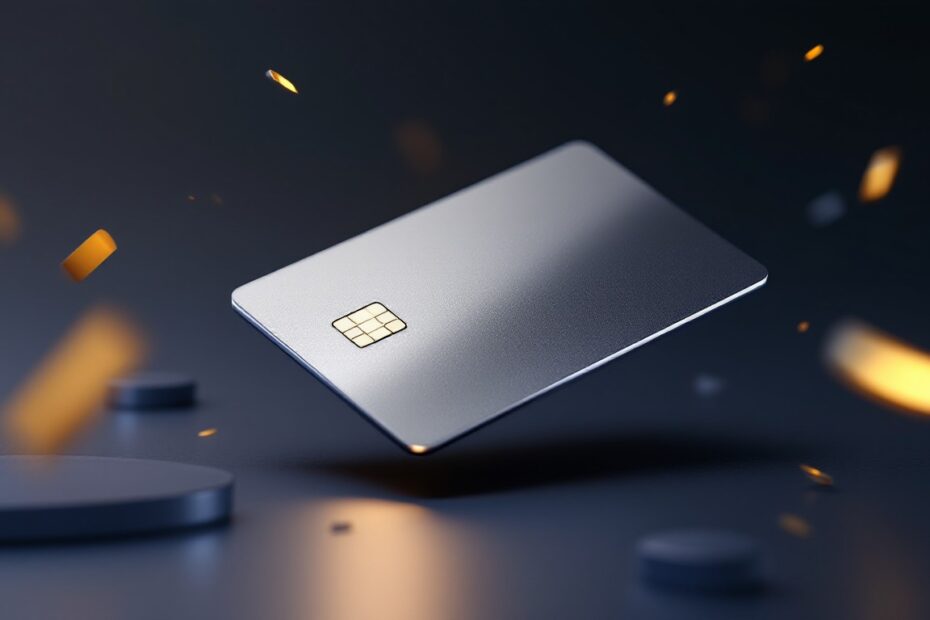💬 Meta description:
Discover how to use your credit card smartly to earn benefits, control spending, and avoid debt. Practical tips to master this financial tool.
📌 Introduction
The credit card is one of the most popular payment methods in Brazil — but also one of the biggest villains of personal finance for those who don’t use it wisely.
💡 When used well, it can be a powerful ally to organize your finances, accumulate miles, earn cashback, and manage your budget.
In this Pocket Tips article, you’ll learn:
-
The main mistakes when using credit cards (and how to avoid them)
-
How to turn your credit card into a financial ally
-
Practical tips to get the most benefits without falling into traps
🔍 What is a credit card — and why does it scare people?
A credit card is a postpaid payment method: you buy now and pay later, usually within 30 days.
📌 It seems practical (and it is!), but it also creates the false impression that money “hasn’t left your account.” That’s where the danger lies.
According to the Central Bank, over 80% of indebted Brazilian families have credit card debt. And revolving interest rates exceed 400% per year.
🚨 The most common (and dangerous) mistakes
❌ 1. Paying only the minimum amount on the statement
This activates the revolving credit, one of the most expensive debts on the market.
❌ 2. Having too many credit cards at the same time
This makes control difficult, increases disorganization risk, and encourages impulsive spending.
❌ 3. Not tracking spending during the month
Waiting for the bill to arrive is the fastest path to a shock at the end of the month.
✅ How to use your credit card smartly
💡 1. Use it as a planning tool, not an emergency fund
Never use your credit card because you lack money in your account. It should be part of your financial plan, not a fallback.
🗓️ 2. Schedule your bill due date a few days after payday
This way, you avoid the temptation to spend the bill amount before paying it.
📱 3. Track your spending in real time
Use your credit card’s app or a financial control app to monitor every purchase.
App suggestions: Mobills, Minhas Economias, or Organizze.
📊 4. Set a personal limit (lower than the bank’s)
Even if the bank offers you a R$10,000 limit, set a personal cap that fits your financial reality — e.g., 30% of your income.
🔁 5. Centralize recurring expenses
Put fixed expenses (streaming services, subscriptions, phone, etc.) on your card. This simplifies control and helps you accumulate points effortlessly.
🎁 6. Use benefits wisely!
Cards may offer:
-
Miles and points programs (Livelo, Esfera, etc.)
-
Cashback directly on the statement
-
Discounts at partner stores
-
Travel insurance, price protection, VIP lounges
Only use these if benefits outweigh the annual fee or if your card has no fee.
📉 When does the credit card become a problem?
-
You frequently miss payments
-
You rely on revolving credit or installment plans
-
You buy just to “collect points,” even without need
-
You lose control and spend more than you earn
📌 If this happens, it’s time to go back to basics: prioritize your debit card and focus on financial balance.
🧮 Credit card vs Installments: what to consider?
Installing payments on your card can be good for planned purchases with affordable installments. Avoid:
-
Spreading many small purchases over time
-
Taking long commitments (10x, 12x) without guaranteed future income
Golden rule: if you can’t pay upfront, think twice before splitting payments.
✅ Conclusion
The credit card is not the villain. Misuse is.
With control, planning, and awareness, it can become a great ally in your finances.
Turn your credit card into a tool — not a trap.

Hello, my name is Ava Brow, I’m 20 years old, and the purpose of creating this website is to work with AdSense and also to help solve everyday problems people face. My main goal is to provide solutions based on my knowledge to address the challenges of my audience.
